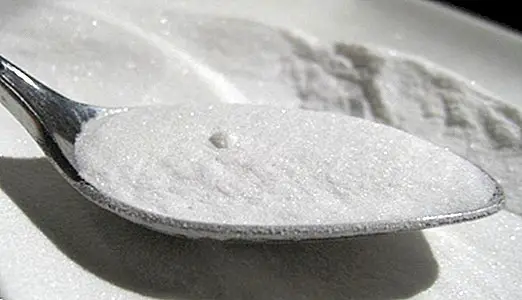Why babies can not eat honey
There is no doubt that the honey It is an extremely healthy food, recommended in a varied diet especially as a substitute for sugar (a sweetener option much less healthy and therefore recommended). In fact, it is only necessary to pay attention to its different qualities and benefits to realize why it is even considered as a superfood: from a nutritional point of view it is very rich in vitamins (A, C, D, B1, B2, B3, B5 and B6) as in trace elements (copper, magnesium, iron, phosphorus, potassium, sulfur, calcium, manganese, sodium and iodine).
In relation to its most important properties, it is very interesting to use it as a natural product against flu and colds, by helping to soothe and relieve sore throat and cough, it provides an antimicrobial and antiviral antioxidant action, and also helps to increase the defenses. On the other hand, it is also useful for the skin, helping to relieve fatigue, to heal wounds and moisturize the skin, as well as being suitable for promoting skin moisture.

However, in spite of all these properties and benefits, if you have children you must keep well in mind a clearly clear warning: the consumption of honey is not suitable for babies or children under 1 year. The reason? It may contain spores of a bacterium known by the name of clostridium botulinum, which tends to cause botulism. These spores can germinate in the baby's digestive system, and cause this rare disease.
What is botulism?
It is a serious illness that sometimes tends to be deadly, caused by Botulinum toxin. This is a bacterial neurotoxin produced by the bacterium clostridium botulinum, which has the ability to multiply within the digestive system of the baby or young child.
Although its most common cause is the consumption of honey or corn syrup, the fact is that these spores can also survive in poorly preserved or badly canned foods, such as canned vegetables, pork, cured ham, and raw or smoked fish .
What are your symptoms?
The symptoms of botulism tend to appear between 8 to 36 hours after consuming contaminated food. Unlike other conditions, fever does not occur, but the following symptoms may occur:
- Respiratory difficulty
- Weakness and loss of muscle tone
- Constipation
- Weeping and weak suction
- Lack of appetite
- Difficulty to swallow
- Lack of expression on the face
If you observe any of these symptoms in your baby or child, it is very important to go urgently to a health center, or to your usual pediatrician.
Is it a serious infection?
As indicated at the beginning, it is sometimes a serious infection that can cause death, complicating producing a prolonged weakness and nervous system dysfunction. In infants, 5% mortality occurs.
However, when treatment is administered early, the risk of death is reduced.
Image | Drew Coffman This article is published for informational purposes only. You can not and should not replace the consultation with a Pediatrician. We advise you to consult your trusted pediatrician. ThemesInfant feeding


